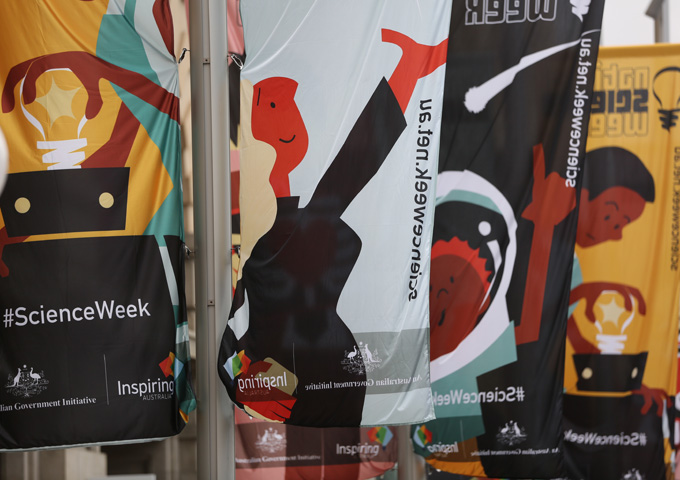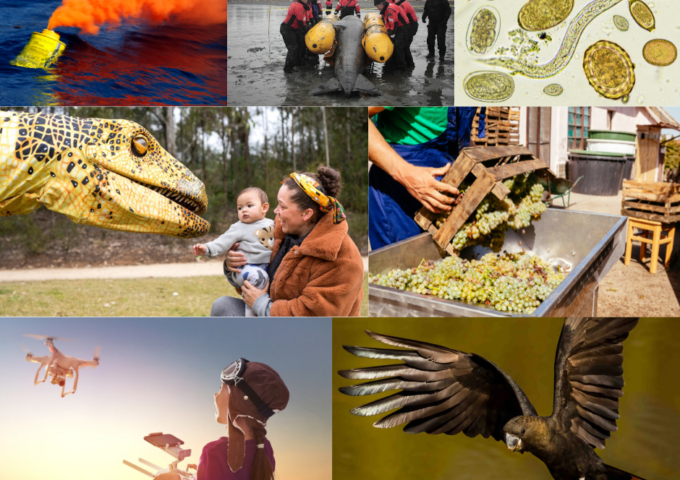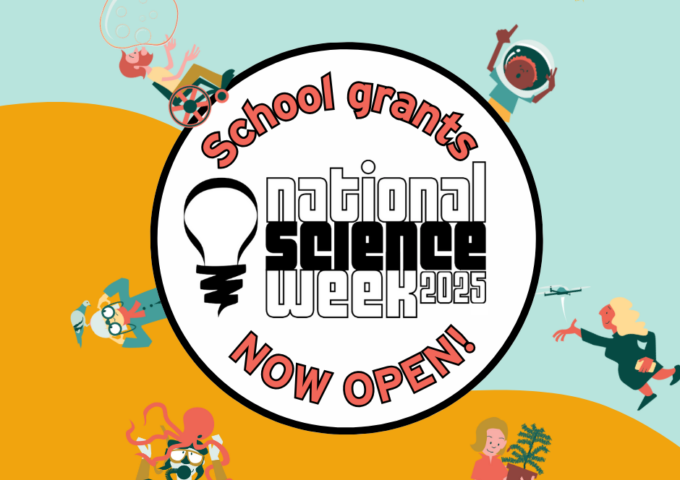
These are the finalists in South Australia’s annual Unsung Heros of Science and Science Communication awards. The winners will be announced at the SA Science Excellence Awards gala dinner to be held at the Adelaide Convention Centre on 11 August.
Unsung Hero of SA Science
Rachel Burton
Professor Rachel Burton is a plant molecular biologist with the University of Adelaide and she has a particular interest in the genes that control the processes by which plant cell walls are formed. Her research to date has mainly focused on barley, but now extends to other cereals and native grasses. She has recently added an interest in biofuels to her research portfolio, and future developments could contribute significantly to the global need to reduce carbon dioxide and replace fossil fuels without impacting on food security.
Her scientific contribution to her field is significant, and the importance of the application of her work is reflected in the large amount of research funding she has been able to attract.
Professor Burton views communication and outreach as an important component of her work, making her complex area of science accessible and meaningful to the broader community. She is a strong advocate for women in science fields and is an inspiring teacher, supervisor and mentor to junior scientists and research students.
Peri and Faith Coleman
For more than three decades, mother and daughter team of Peri and Faith Coleman have together and separately contributed enormously to our scientific understanding of the South Australian environment. Both operate their own Environmental Consulting Agencies but regularly combine forces to produce outstanding management plans, recovery programs, policy documents and published scientific research around species of plants and animals or specific regions within the State.
Both Peri and Faith have most frequently focused their work on coastal, saltmarsh and estuarine regions around South Australia, but they are also regular researchers for government, NRM Boards and Industry on topics and regions including birds, wetlands, grasslands, plant assemblages and many other issues of environmental concern.
Faith and Peri are committed to supporting each other in their applied science, research, advocacy, policy construction and environmental understanding to ensure best outcomes.
Francesca McInerney
Dr Francesca McInerney, from the University of Adelaide, uses the chemical traces of ancient plants to understand how climate change affected ecosystems in the past. The broad aim of her work is to use these records to anticipate future climate change impacts on vegetation, soils and biogeochemical cycles.
Originally from the US, she had a thriving career and an extensive professional network across a number of universities before finally accepting an ARC Future Fellowship in Australia in 2012. Since that time she has built up a large and active research group and developed wide-ranging collaborations.
Her infectious enthusiasm for her science is communicated through her university teaching, popular public lectures, events with school students and providing – in a volunteer capacity – other field and laboratory experiences to post-graduate researchers.
Unsung Hero of SA Science Communication
Lisa Bailey
Dr Lisa Bailey has enjoyed a varied career, but truly began working within the field of science communication when she moved to London and worked for the renowned Royal Institution of Great Britain. Upon her return to Australia, Lisa played an integral role in establishing the Royal Institute of Australia, where she is still employed as Programs Manager. She recently commenced as a part-time lecturer in Science Communication and Policy at Flinders University.
Throughout her career Lisa has made a significant contribution to communicating science to thousands of people throughout the world. She has also been the driving force behind the resurrection of Australia’s most successful science film festival, the SCINEMA International Science Film Festival.
She is a tireless advocate for quality science communication, as well as for increased opportunities for women and girls to have meaningful STEM careers.
Ingo Koeper
Dr Ingo Koeper is an outstanding lecturer at Flinders University. He has continuously shown a great enthusiasm for teaching and for the engagement and motivation of students.
Like all great teachers, Dr Koeper always puts his students’ needs first and endeavours to understand what motivates them to learn and develop. He has applied this philosophy to chemistry and nanotechnology topics across all years, from first year undergraduate students to postgraduate level, and has been a leader in making major changes to the way these topics are taught.
As well as being at the forefront of developing and implementing new teaching approaches, he is also a pioneer of online learning within the school of chemical and physical sciences. To quote one of his students: “Dude knew how to rock it!”.
Ian Musgrave
Dr Ian Musgrave is a molecular pharmacologist/toxicologist at the University of Adelaide where he has worked as a researcher and lecturer since 1994, producing over 100 scholarly publications.
Dr Musgrave has also made an enormous contribution to the communication of science and for many years has been the most prolific media commentator for the university across the sciences and health sciences. He is a regular contributor to the online publication “The Conservation”, including his own column which focuses on his research area of toxicology. He enthusiastically engages the media and the public on topics requiring scientific explanation and his essays have been included in high-profile science writing and blogging anthologies.
In addition, Dr Musgrave is a dedicated amateur astronomer, with his own blog “Astroblog”, as well as contributing to podcasts and articles related to popular astronomy. He has also written on evolution for the “Panda’s Thumb” blog and he is involved in numerous science communication events throughout each year.





